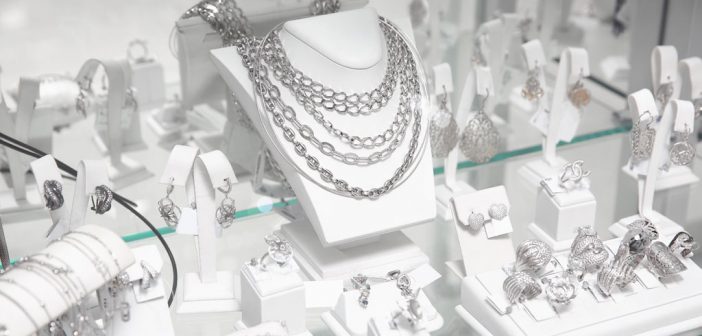The e-commerce surge in India has transformed not just how people shop but also the types of products they buy. A notable trend has emerged: increasing demand for sterling silver and precious stone jewelry through online platforms. Indian startups have taken advantage of this booming e-commerce landscape, appealing to consumers seeking unique, affordable, and authentic jewelry. From urban millennials to international buyers, the sector has found a rich audience and has expanded rapidly.
The Rise of Jewelry Startups
India’s jewelry market, traditionally dominated by gold, has seen a shift as sterling silver and gemstone jewelry become popular alternatives. A growing number of startups specialize in high-quality, affordable sterling silver jewelry, with some even combining it with semi-precious stones like turquoise, amethyst, and topaz to add a modern twist. The flexibility and affordability of sterling silver and semi-precious stones, combined with the artistic and cultural value of Indian designs, have helped these startups carve a niche in a crowded market.
E-Commerce’s Role in Jewelry Market Growth
India’s e-commerce sector has grown by leaps and bounds, with the market expected to reach around $188 billion by 2025. This explosive growth has made it possible for small and medium jewelry brands to reach consumers nationwide without the high costs of physical stores. Leading e-commerce platforms such as Amazon, Flipkart, and Myntra, along with niche marketplaces like Nykaa and AJIO Luxe, provide startups with diverse channels to showcase their products. Additionally, direct-to-consumer (D2C) websites and social media platforms like Instagram and Facebook have become critical avenues for these jewelry brands to connect with customers, share their stories, and showcase craftsmanship.
Meeting Demand for Unique and Personalized Jewelry
Modern consumers, especially millennials and Gen Z, are increasingly drawn to personalized and unique jewelry that reflects their individual style. This has fueled the demand for sterling silver jewelry with artistic designs, engravings, and innovative combinations with precious and semi-precious stones. Unlike traditional jewelry stores that often cater to more formal tastes, these startups target everyday wear that’s elegant yet budget-friendly.
Many startups are emphasizing eco-friendly and sustainable sourcing practices to appeal to environmentally conscious consumers. By ensuring transparency in sourcing, particularly for precious stones, these brands enhance their credibility and appeal.
Success Stories and Growth Potential
Numerous Indian startups have gained a strong foothold in this space, with brands like GIVA, Pipa Bella, and Melorra emerging as popular names. GIVA, for example, has successfully tapped into the millennial market with affordable yet high-quality sterling silver jewelry, supported by a strong social media presence and influencer partnerships.
Some of these brands have reported 2x to 3x growth annually, reflecting the high demand for unique, non-traditional jewelry styles. The market for affordable luxury jewelry in India is projected to grow significantly, with estimates suggesting it could expand by 20-30% annually in the next five years, driven by e-commerce and changing consumer preferences.
Technology-Driven Personalization and Innovation
Indian jewelry startups are also leveraging technology to enhance customer experience. Many brands offer virtual “try-ons,” where customers can see how the jewelry will look on them using augmented reality. This feature, increasingly common among online jewelry stores, allows consumers to experiment with different looks without needing a physical store. Customization options, such as name engravings or bespoke designs, also enable buyers to create personalized pieces, which add emotional value and make the jewelry unique.
Challenges in the Market
Despite the growth, these startups face challenges, including competition from established jewelers moving into the e-commerce space and price-sensitive consumers wary of online purchases for high-value items. Additionally, ensuring product authenticity and quality in online sales remains a challenge, as consumers still harbor concerns about the legitimacy of precious stones and sterling silver products purchased online.
To build trust, many startups provide certificates of authenticity and detailed information about their products’ origins. Return policies, customer reviews, and unboxing videos are also instrumental in reassuring customers about the quality of the jewelry they’re buying online.
Future Outlook: A Strong Market for Sterling Silver and Precious Stones
The future of sterling silver and gemstone jewelry startups in India looks bright. With increasing internet penetration, rising disposable incomes, and a growing preference for unique, eco-conscious designs, these companies are poised to thrive in India’s e-commerce ecosystem. As brands continue to innovate and differentiate themselves, there is significant potential to capture both domestic and international markets.
In conclusion, India’s e-commerce expansion has provided fertile ground for jewelry startups focusing on sterling silver and precious stones. With creative designs, transparency in sourcing, and affordable price points, these startups are not only catering to India’s changing consumer base but also reshaping the jewelry industry. As more consumers embrace online shopping for jewelry, the sector’s growth trajectory appears promising, reflecting a shift in how Indians view and purchase jewelry.






